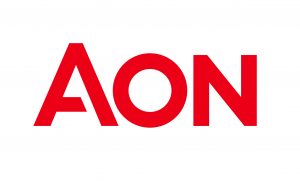Congratulations! You’ve spent the past few years working hard and studying for your degree. Now it’s time to hit the world of work. While it might seem daunting, this is an exciting time of your life and means you can get out there and start earning yourself some money.
If you’re not sure where to start, read on for our advice on how to kick-start your graduate job hunt.
Consider the jobs you want to apply for
Firstly, you need to think about the types of jobs that you want to apply for. This isn’t easy – especially if you’ve done a more generic degree. But don’t fear. There are a range of tools only which can help you to decipher what job is right for you. Think about what you enjoy doing and what you may like to do in the future.
For example, if you have a penchant for numbers, you could look to work as an actuary or an accountant. If you’re more creative, you could become a graphic designer or a photographer. There are plenty of exciting job roles out there and it’s only natural to be unsure about what you want to do.
Gain work experience
Once you’ve got a rough idea of what career path you’d like to go down, it’s worth thinking about if you have any skills which will help you to get your foot in the door. For example, if you do want to get into a finance role, could you volunteer as a treasurer for a local club or charity? Alternatively, you could take part in an internship or work shadowing scheme.
Think about ways in which you can gain experience to boost your chances of securing a job. It’s not always necessary – some employers will hire on potential, rather than your past experience – but it can help you to stand out from the competition and shows initiative.
Perfect your CV
Now it’s time to start on your CV. This document should give a clear overview of who you are, where you’ve studied, the experience you have so far and what you’re looking for in a job. Ensure that this is no more than two pages long and uses a clear format with an easy to read font such as Calibri or Arial in size 12. You can then use a bold setting for any headings.
As a basic layout, your CV should start with your personal profile. Here, you need to tell the reader a bit about yourself and highlight a few relevant skills that make you stand out. For example: ‘A recent graduate with a 2:1 in Mathematics, looking to expand my skills in an exciting entry-level position. My experience so far as an intern at Willis Towers Watson has fuelled my passion to become an actuary. After this, you should list out your experience, if you have any, and follow this up with a section on your qualifications. Don’t feel the need to list out everything individually here. For example: 9 GCSEs grades A*-C including English and Maths, should suffice. Finally, give it a good proofread before you send it off anywhere.
Write a strong cover letter
To accompany this, you need to write a strong cover letter, which expands on key points mentioned in your CV. Generally, both should be tailored to each role you apply to, but it’s always worth having a generic copy of your CV and cover letter on hand to act as a template.
Within your cover letter, your first paragraph should focus on why you’re getting in touch. In most cases, you’ll be writing to them in reference to a job advert. But, if you’re making cold contact, just explain who you are and why you’re writing to them. The second paragraph will explain a bit more about your experience and why it is relevant to them and the role you’re after.
Finally, your third paragraph should show off any research you’ve done on the company. This could be anything from the company culture to key award wins. Close off your cover letter by thanking them for their time and letting them know when you may be available for an interview.
Register with job boards
When it comes to searching for a role, job boards are your best friend. These platforms enable you to not only search through thousands of relevant positions, but also, register your CV and be headhunted by recruiters. It only takes minutes to register and you can tailor your preferences on the types of jobs you want to hear about.
In summary
As a fresh graduate, you’re in an extremely positive position when it comes to looking for a job. Whether you already have some experience, or need to build some up, you’ll be able to perfect your CV and cover letter in no time and start looking for work. Good luck!
CV-Library is the UK’s leading independent job board. For more expert advice on careers and the workplace, visit their Career Advice and Recruitment Insight pages.



